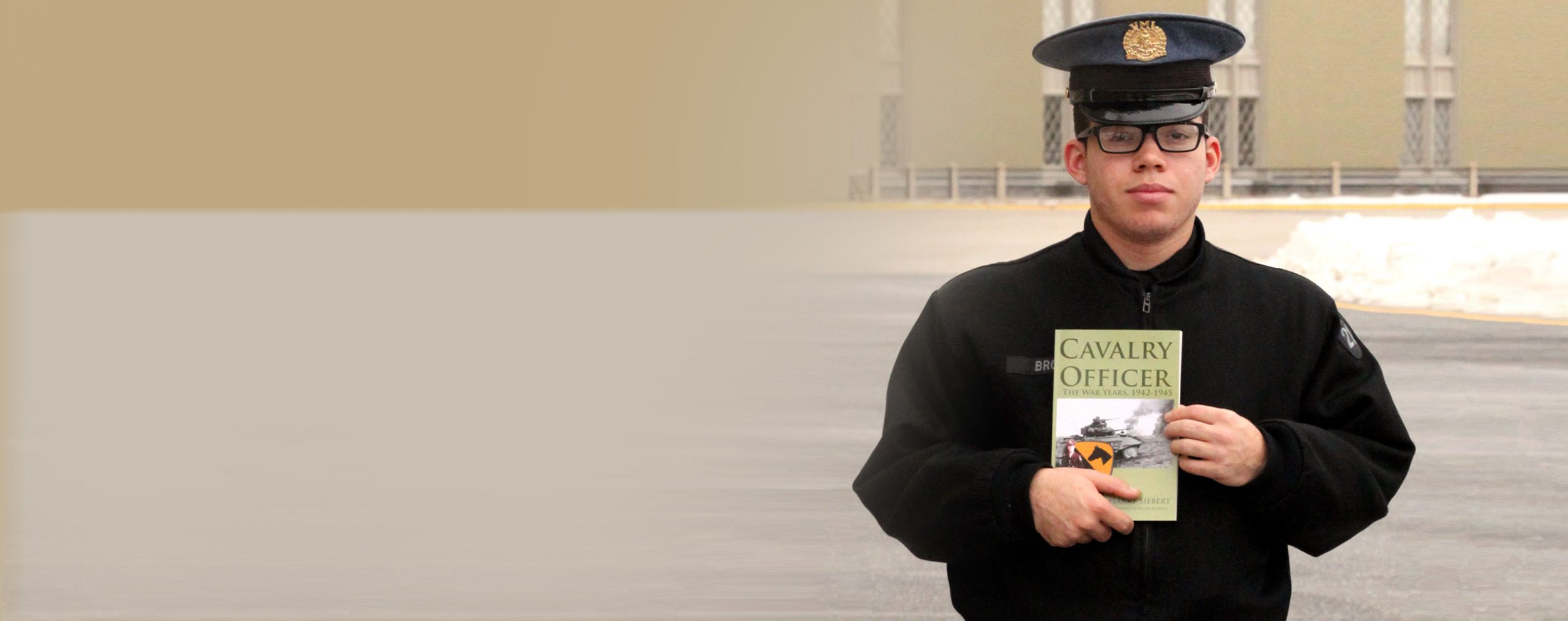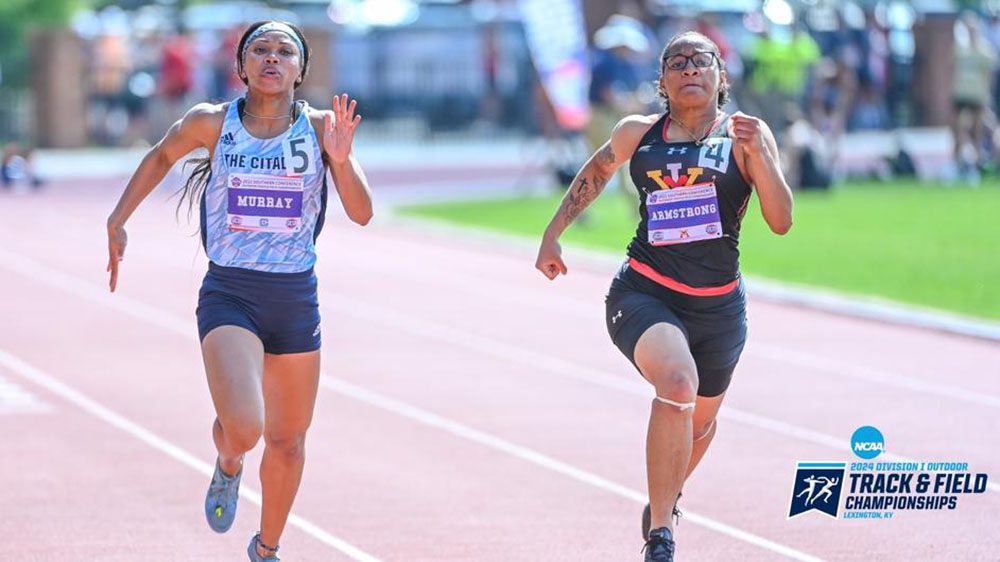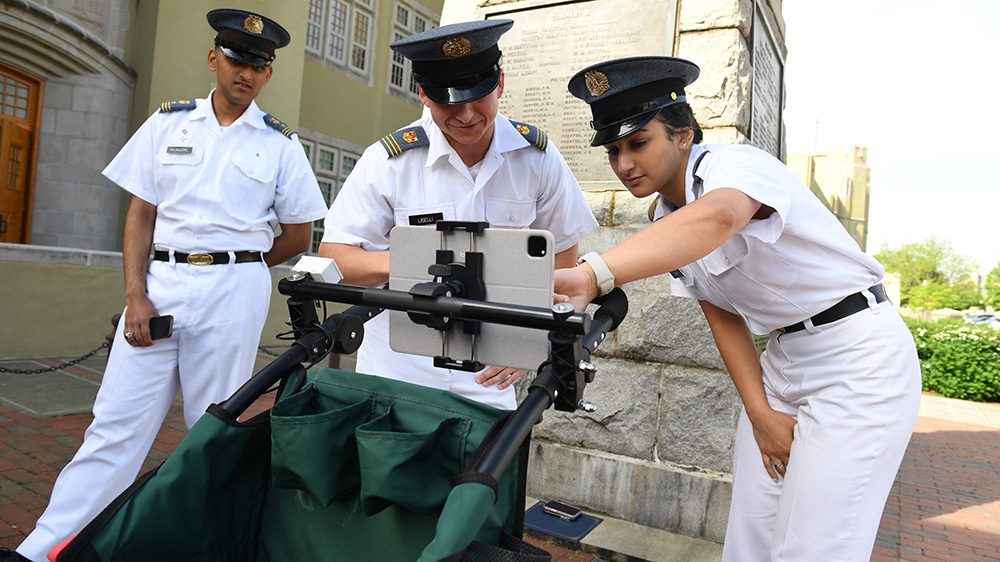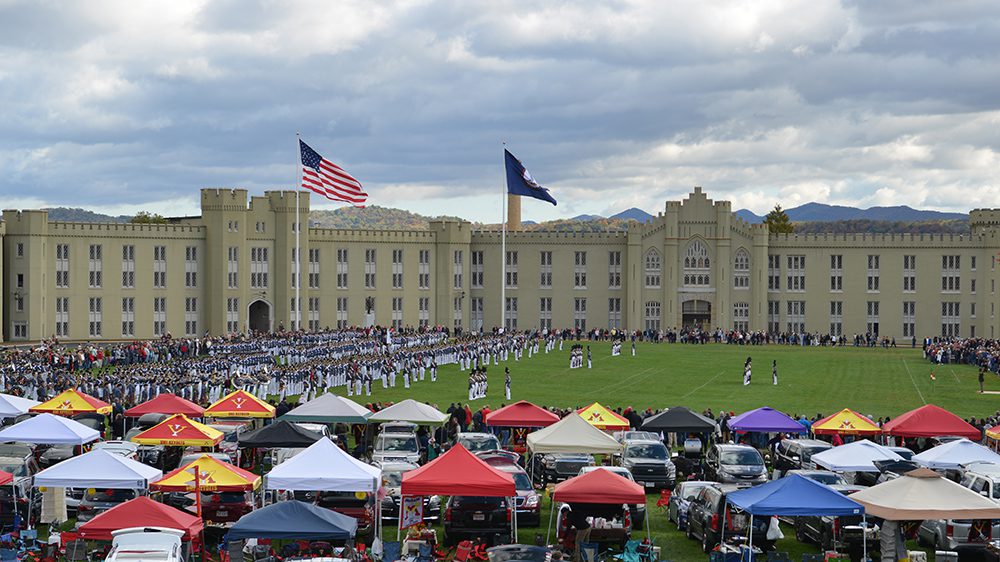To an outside observer, the standards upheld by VMI cadets could be attributed to the strictness and austerity of the Lexington post. Cadet character, however, is forged at the Institute and built on foundations of honor, duty and service – and that character shines through in all cadet actions.
These character standards were in evidence when the class agent for the Class of 1942, Harry J. Siebert ’42, died Oct. 31, 2018. A call went out through the commandant’s office for cadet volunteers to represent VMI at the funeral – scheduled for the first day of the Corps’ Thanksgiving furlough. The email notice for volunteers included a brief description of Siebert, an Army cavalry veteran who participated in the Normandy invasion during World War II.
Requests for volunteers to attend funerals, weddings or other events are not unusual, said Cadet Josh Brown ’21. Brown had previously participated in a Company E – his company – alumnus wedding. Despite the funeral taking place during a Corps furlough, several volunteers came forward, said Corps and Institute Sgt. Maj. Tom Sowers.
From the volunteers, two cadets – possessing what may possibly be the two most ubiquitous surnames at VMI – were selected: Cadet Ethan Smith ’19 and Brown. The cadets’ commonplace surnames were fitting, Sowers noted. “[Smith and Brown] represent the cadets – They are the same as every other cadet at VMI.”
“The effort of these cadets to give their own personal time to honor a VMI alumnus is emblematic of the type of person VMI embodies: Those of high character who freely give of themselves to honor and serve others,” said Thom Brashears ’95, VMI Alumni Association chief operating officer.
Brown volunteered, he said, because his great-grandfather was a World War II veteran who died a few years before Brown was born. Although Brown never met his great-grandfather, the man left a legacy which Brown’s mother passed down to him when she related stories of his great-grandfather’s life.
“I didn’t get to know my great-grandfather,” Brown said. “I wanted to honor the man who possibly fought alongside him. There’s not many of those people around to go see, or talk to or honor.”
After the funeral, Jody Siebert – Harry’s widow – was able to spend some time talking with Brown and his mother, and told them more about Harry and his life experiences. Jody was, she said, incredibly honored and touched by the two cadets who took time out of their vacations to pay their respects and represent VMI at Harry’s funeral. Echoing her sentiments, Brashears said, “Harry was a special man, from helping to liberate Europe on the beaches of Normandy to his wonderful collection of stories regarding the history of the U.S. Cavalry. I was glad he was so honored, and I could not be more proud of the cadets.”
Before parting ways, Jody gave Brown several copies of a book written by Harry detailing some of his time at VMI and his military service.
“Life at VMI turned me in a new direction, gave me purpose and ambition, and most of all developed my character,” Harry wrote in the preface of “Cavalry Officer: The War Years, 1942-1945,” which was published when he was in his ninetieth decade. “I owe so much to the leadership, army officers and professors who started me on a new path.”





